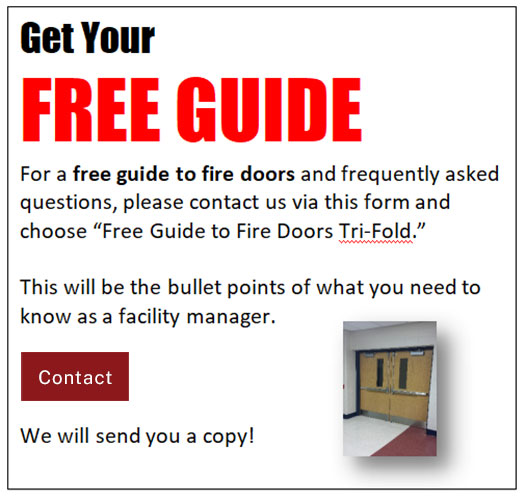Fire Door Resources
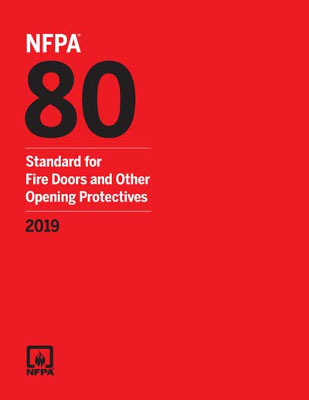
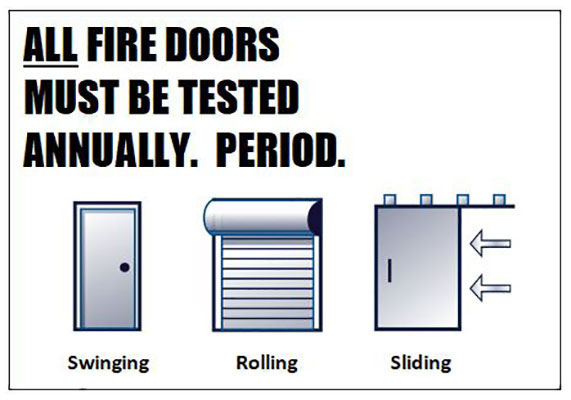
The National Fire Protection Association requires that all fire-rated doors in all facilities be inspected and tested on a yearly basis, and records to be kept for 3 years. This ensures that the doors will work in the event of a fire condition and do the job they were designed to do. If you were wondering, the requirement for testing of ALL doors has been in effect since 2007.
NFPA 80 - Standard for Fire Doors and Other Opening Protectives is the standard that includes THE details of fire door assemblies. This standard is referenced by the model codes, in addition to the information that is included in the codes with regard to fire doors. The model codes mandate the location of fire doors, and the amount of protection the opening protectives must provide. NFPA 80 includes more specific information about the construction, testing, and maintenance requirements of the fire door assemblies. We use this as our guideline.
As a note, there are various types of fire doors. Swinging, rolling and sliding are the most popular; however, there are accordion, trash chute fire doors, counter fire shutters, fabric roll-up rated doors, dampers and rooftop smoke-rated doors. Contact us for specifics on what you have and we can discuss your options. We can do a facility walk-thru to identify them.
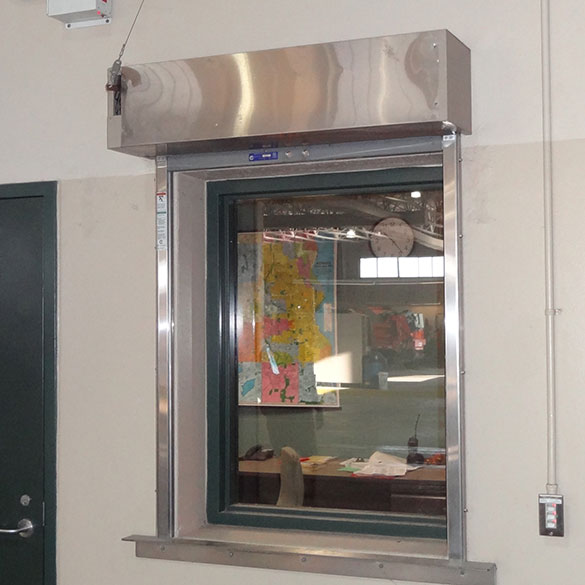
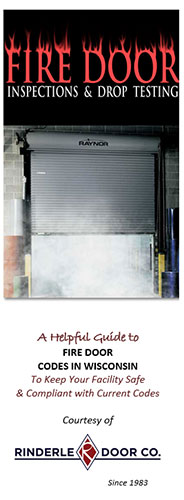
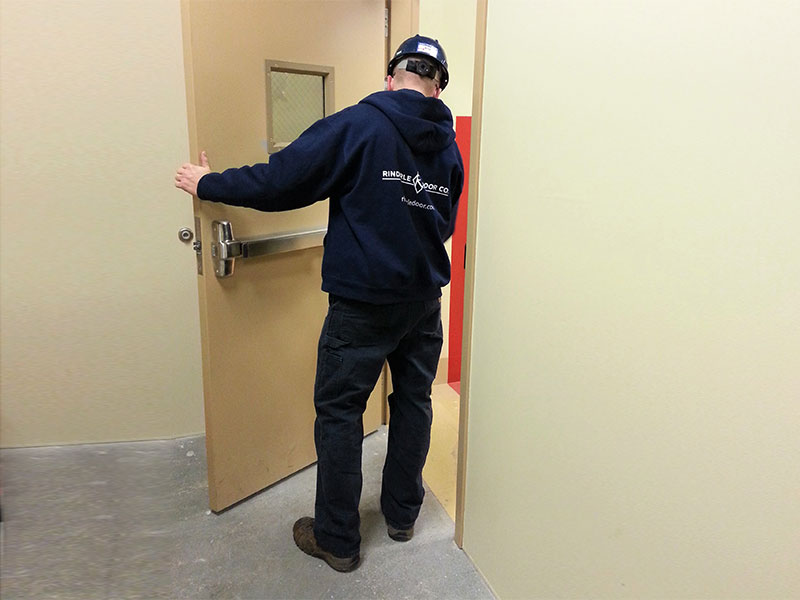
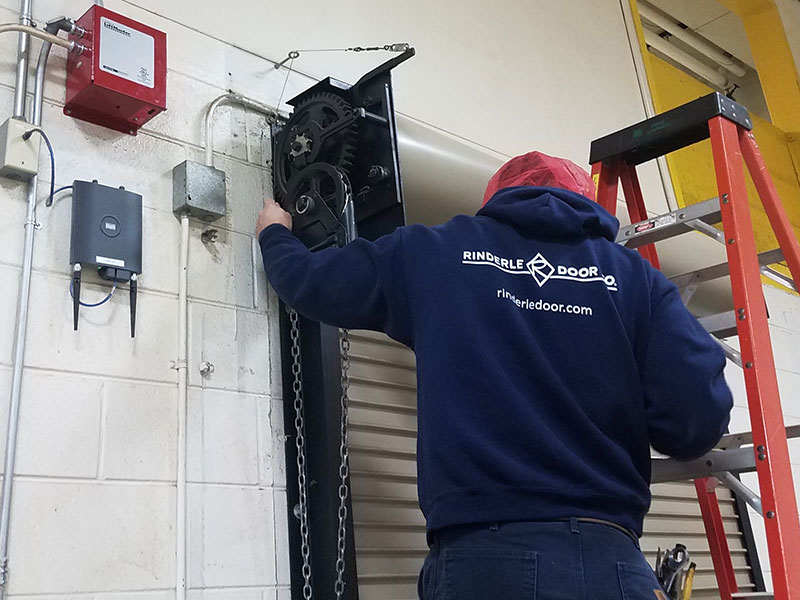
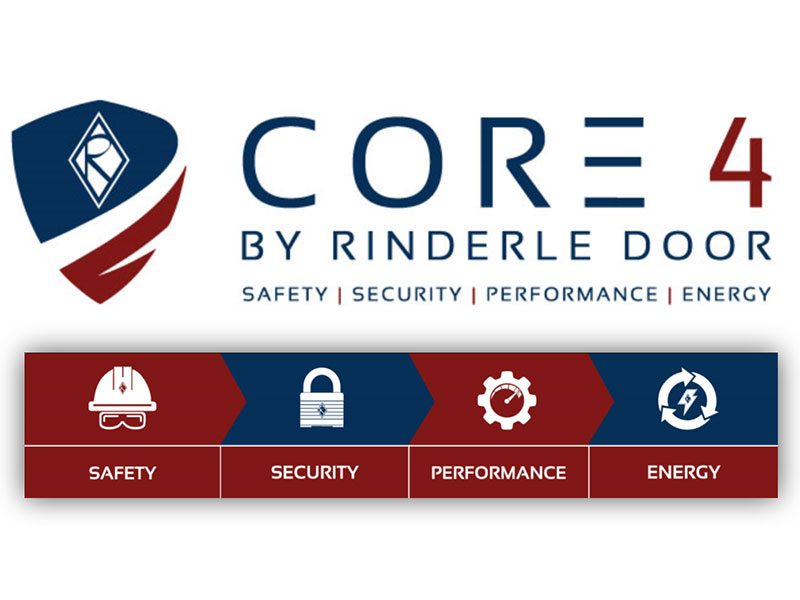
As you can see…the first part of the Core 4 System is SAFETY.
Let's make sure your facility is as safe as it can be.
The Cost / Benefit of the Right Fire Door Testing Partner
Inspection and Testing entails more than just the onsite labor and field work.
To do fire door testing right, it requires:
- knowledgeable staff; knowing the codes
- buying/owning the proper code books
- reviewing the codes frequently for changes and updates
- employing a staff to answer questions from the field
- attending classes and seminars for additional knowledge
- giving seminars on fire door code for decades
- carrying proper insurance levels
- training our technicians (in-house and on-the-job)
- having relationships with vendors to obtain parts and information
- having vast resources for parts
- experience (Rinderle Door has been around for nearly 40 years)
- maintaining good relationships with fire inspectors/AHJ's
- attending fire inspector conferences and meetings
- collecting pictures of a multitude of scenarios and organizing for training and resources
- keeping installation instructions on hand
- having retrofit options to save costs
- reviewing issues and gathering solutions after the inspection/test
- coordinating a schedule to meet compliance demand
- having proper stickers and drop test forms
- stocking fire door parts
- assuming responsibility of the service
- maintaining test records at our facility
- sending out reminders of upcoming annual requirement
Doing inspections on your own, or with a firm that is not able to obtain or maintain these resources could cost you much, much, more in the long term. Feel free to contact us to discuss how we may be a helpful partner for your facility.
Call 262-662-5200 or CONTACT US here
The Rinderle Door Approach to Testing and Maintaining Fire Door Systems:
How we can help with keeping fire doors in proper condition and your people safe.Attention Facility Managers and Building Owners:
Here are 3 steps to take with your fire doors before your next inspection.
